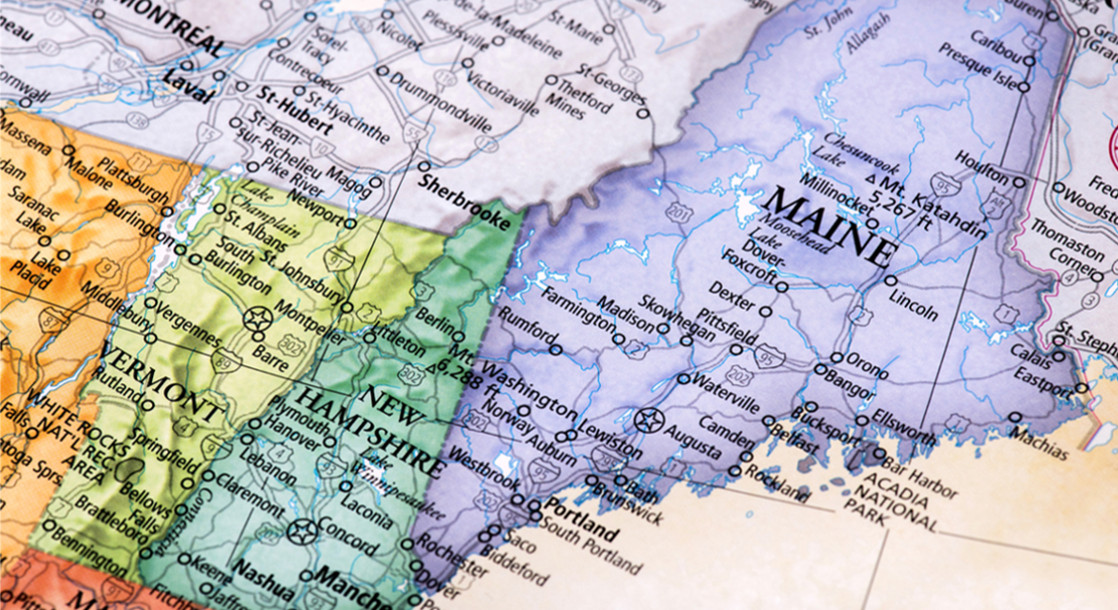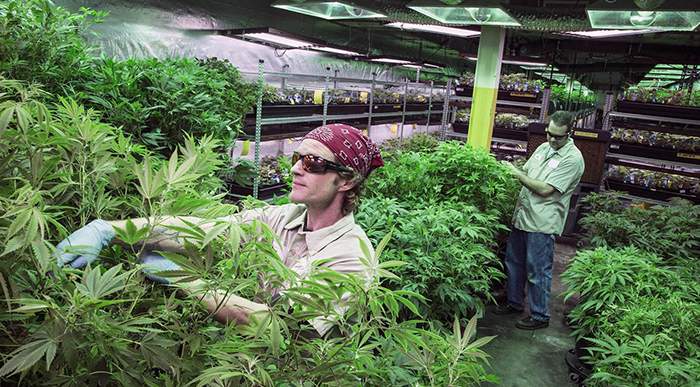Photo via iStock/ omersukrugoksu
The rollout of recreational cannabis sales throughout New England has been set back once again by politicians hoping to delay or even prevent the sale of legal weed. In Maine, Gov. Paul LePage has vetoed the state legislature's bill to regulate recreational cannabis sales for the second year in a row. And in Vermont, where it’s currently legal to use but not sell pot, legislators just voted to delay a bill that would have launched taxed and regulated retail cannabis sales.
Maine voters legalized the sale and use of recreational cannabis back in 2016, but conservative politicians, led by hardline pot prohibitionist LePage, have been fighting to keep legal marijuana off the market. Last year, the state legislature re-wrote the voter-approved legalization measure, adding new and more restrictive regulations, but LePage vetoed the bill, arguing that it still wasn’t cautious enough. This year, Maine lawmakers re-wrote the bill again, working hard to include new provisions aimed to please the governor.
LePage — who reportedly loves blocking bills so much that he named one of his dogs Veto — vetoed the new bill Friday despite legislative efforts, contending that it doesn't make sense for the state to have separate regulations and tax rates for medical and recreational cannabis. The governor also expressed concerns that the new legislation doesn't do enough to protect against stoned drivers: In his veto letter, LePage said that other canna-legal states “have seen staggering increases in motor vehicle fatalities resulting from marijuana impairment,” without providing any facts to support this claim, according to the Portland Press-Herald.
State Sen. Roger Katz said that after LePage vetoed the bill last year, legislators met with him and worked specifically to address his concerns. “The choice now for legislators is whether to adopt the bill before them, which is the result of literally a year and a half of serious deliberation, or go back to the original marijuana legalization act,” Katz said to the Portland Press-Herald.
“The [voter-approved] marijuana legalization act allows for things like internet sales, home delivery and drive-up windows, which we felt clearly were not in anyone’s best interest,” Katz continued. “Our bill, which is really a bipartisan effort, provides far greater safeguards to keep this out of the hands of kids, far better provisions for appropriate labeling and product warnings, and far more funding for law enforcement and public health education than the original bill.”
Maine’s new bill still has a chance of success, however, because both chambers of the state legislature approved it with enough support to override the governor’s veto, unless twelve state representatives or two senators change their minds on the matter. If legislators do cancel out LePage’s veto, Maine should be on track to finally issue licenses for pot shops by spring of next year.
Licensed marijuana sales have also been placed on the back burner in Vermont, where legislators voted Friday to table a bill that would have established a regulatory framework for retail sales. In January, the Green Mountain State legalized the possession and use of cannabis, but sales of the drug remain illegal. Last year, the state Senate passed a bill to allow taxed and regulated retail sales, but the state House failed to advance the legislation.
This year, a bipartisan group of legislators has been pushing a version of the bill through the state House, arguing that tax revenue from legal sales would help fund the state's attempts to combat the opioid crisis. Despite this sudden surge of support, the state House voted 106 to 28 to indefinitely shelve the bill late last week. Lt. Gov. David Zuckerman, a vocal proponent of the bill, told Seven Days that, “There is plenty of support to legalize, but sometimes in this building, the powers that be guide legislators to do something that isn't what their constituents want."
Several local politicians said that they voted against the bill not because they oppose legalizing retail sales, but simply because there was not enough time left in this year's legislative session to fully debate all the details. "There are many, perhaps a majority, who would like to legalize with a tax-and-regulate system," said state Rep. Sarah Copeland-Hanzas, according to Seven Days. "But it's clear we have more critical decisions to make."
Advocates of the bill are disappointed in the outcome of the vote, and have argued that the state's current plan of legalizing cannabis possession, but not sales, will drive marijuana consumers to the black market. “The way it’s gonna become legal is the worst possible way, from my perspective," House Minority Leader Don Turner said to Vermont Public Radio. "There’s no regulation. There’s no taxation. But all the costs associated with it still come.”
Although the legislation failed this year, lawmakers are optimistic that it will be revived next session, with ample time to debate the regulations. "I fully expect this issue to come back to the House next year," House Majority Leader Jill Krowinski said to Seven Days.











